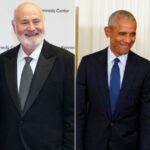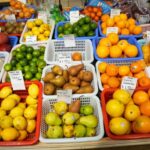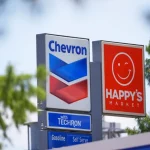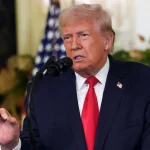
In 1902, the Rev. Edgar J. Helms started Goodwill, which embodied a philosophy of empowerment through work. Helms was deeply concerned about the plight of immigrants and the urban poor who struggled to find work and support their families. His idea was to collect used goods from the wealthy areas of Boston and employ those in need to repair and resell these items.
The model was groundbreaking for its time. Instead of just providing handouts, Helms believed in giving people the opportunity to earn their own living, learn valuable skills and gain self-respect through work.
The philosophy of “a hand up, not a hand out” became the cornerstone of Goodwill’s mission.
But today, the model seems to be to make handouts as attractive as possible so that there is no incentive to want better for yourself.
Case in point: San Francisco has opened its first free grocery “market” aimed at providing supplemental food assistance to low-income residents in one of the city’s poorest neighborhoods.
The $5.5 million District 10 Market in the Bayview-Hunters Point area allows people to get free groceries once per month by showing a special benefits card, according to The Center Square.
The District 10 Community Market offers free food to low-income residents who receive food assistance such as SNAP and meet certain criteria 🛒 https://t.co/WqsfTofjkP
— KSFO (@560KSFO) June 10, 2024
The Bayview-Hunters Point neighborhood is known as a “food desert” because of high crime rates that have deterred traditional supermarkets from maintaining a long-term presence. The District 10 Market is changing the conventional food pantry model to provide a supermarket-like experience for its low-income residents.
Are taxpayers being pushed to the breaking point?
Yes: 100% (70 Votes)
No: 0% (0 Votes)
Progressives have destroyed American cities on the taxpayers’ dime with lax crime policies — and now these same taxpayers are expected to pay for the “fix.”
The 4,000-square-foot facility is designed to closely replicate a typical supermarket. Participants can browse the aisles, fill their shopping carts and check out without paying a dime.
Today, we proudly opened the Food Empowerment Community Market in Bayview-Hunters Point. This new market is a crucial step in addressing food insecurity in District 10, offering free and healthy groceries to those in need. pic.twitter.com/Y1LHdGb0pd
— London Breed (@LondonBreed) June 4, 2024
The District 10 Market’s operations are funded by a substantial $5.5 million grant from the San Francisco municipal government, and it provides high-quality, fresh produce to beneficiaries by sourcing directly from Rodriguez Brothers Ranch, a local farm in Watsonville, California, according to KGO-TV.
Eligibility is limited to residents of three local ZIP codes who are verified social services clients and meet some other requirements.
The supermarket opened on the heels of California cutting nearly $200 million from its law enforcement budget.
Goodwill’s model recognized that true dignity comes not just from having basic needs met but also from the pride of earning one’s living. Its “hand up” approach aimed to break the cycle of poverty by equipping individuals to support themselves.
In contrast, the $5.5 million investment in creating a “supermarket experience” in the District 10 Market, where everything is free, sends an entirely different message.
By reducing law enforcement budgets, the state risks further business flight and job losses and more dependency on programs like the District 10 Market.
True compassion and effective policy should strike a balance: meeting urgent needs while always aiming to foster independence, self-worth and the ability of individuals and communities to lift themselves out of poverty.
Like many Democratic programs, the District 10 Market, while seemingly compassionate, will do nothing in the long term for the community other than increase dependency, lower self-worth and create a demand for more such markets.







